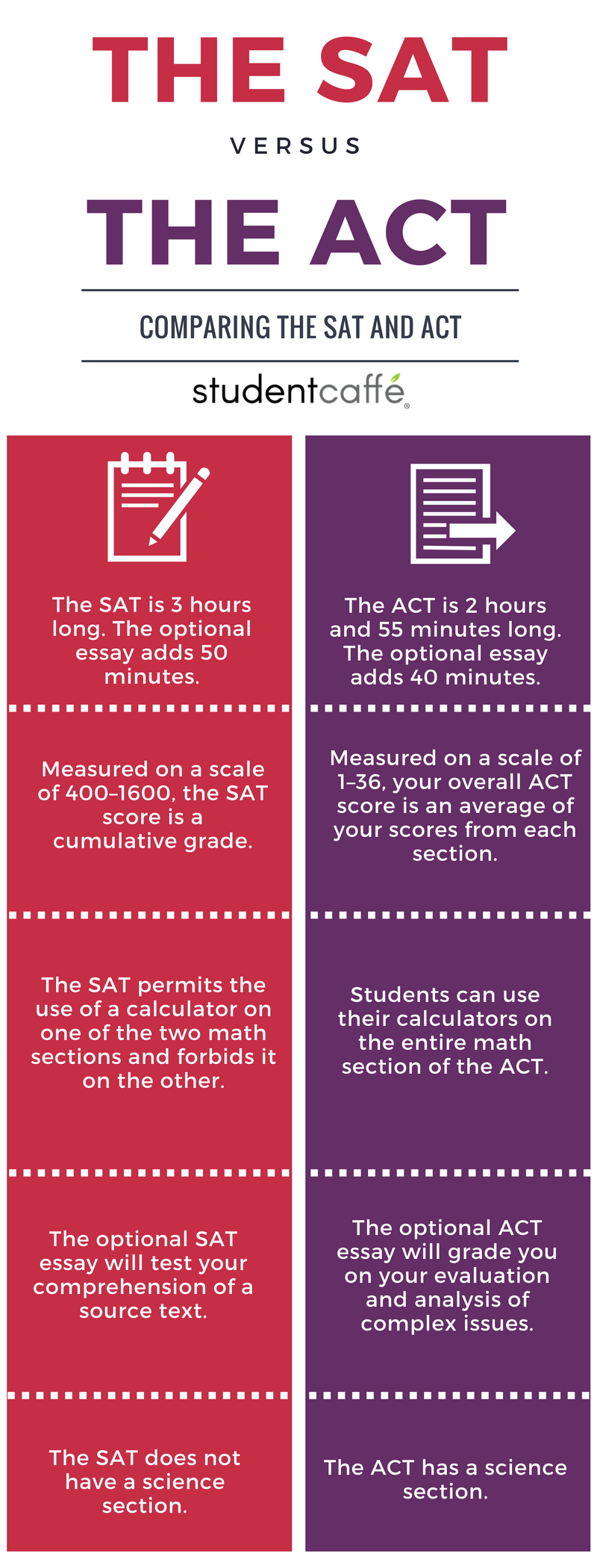
Syda Productions / Shutterstock.com
Getting into college is a process that begins years before actually stepping foot into a college classroom. Long before move-in day, applicants must understand the differences between the two big college entrance exams, the ACT and the SAT. These standardized tests are not easy, and they may not even be required for the colleges on your list. However, if you strive to be considered a competitive applicant and get into your dream school, taking one and scoring well will likely do the trick. So, you must choose which test to take.
A Quick Backstory
The SAT was first administered to high schoolers in 1926. It was created by Carl Brigham, who had worked with Robert Yerkes to develop the Army IQ Test during World War I. Harvard soon picked up the test, deciding to make it mandatory for all applicants and using it to select public school students for a scholarship program. Eventually, other colleges followed suit, including the test’s biggest client, the University of California, in 1960.
The American College Testing (ACT) was organized in 1959 as a direct rival to the Educational Testing Service, which administered the SAT.
Today, scores from the SAT and ACT are a required component of many college admissions applications. Students can choose either-or. For students who have never taken either of these tests and never want to, there are quite a few colleges that don’t require test scores. As a returning student, if you took the SAT before it was remodeled in January 2016, your college may ask you to retake it. To get a high score on your standardized tests, which will be a determining factor in your admission to college, you’ll need to choose the best test for your strong suits.
How to Choose
The two exams differ in a few ways, which is great considering each student is different. When deciding, consider the differences and relate them to your skillset. The following are the main factors which will help you find your fit.

Text by: Katelyn Brush; Design by: Katelyn Brush
- Subjects Tested: The SAT includes evidence-based reading and writing, math, and an optional essay. The ACT also covers math, English, and reading, but it has an additional subject: science (the SAT does not cover science). Want more detail?
- Science: On the ACT, the science section focuses on your critical thinking skills. If you’re a science nerd, let yourself shine by signing up for this test. To prepare for this section of questions, use study resources, like the sample test questions provided on the ACT website.
- Math: The SAT covers arithmetic, algebra I and II, geometry, trigonometry, and data analysis. The ACT has arithmetic, algebra I and II, geometry, and trigonometry, but it does not cover data analysis. If analyzing data is your forte, think about taking the SAT.
- Reading: The SAT includes five reading passages that you’ll need to pay close attention to if you want to excel in reading and writing. Remember, this section is evidence-based. The ACT has four passages: literary narrative or prose fiction, humanities, social studies, and natural sciences.
- Writing: The SAT essay will test your comprehension of a source text. Meanwhile, the ACT will grade you on your evaluation and analysis of complex issues. For both tests, the essay section is optional. However, some more competitive colleges will suggest or even require that you write the essay on the standardized test, so keep that in mind when registering.
- Timing: The tests don’t vary much when it comes to timing, so if you were looking for a shortcut, this isn’t it. Without the optional essay section, the SAT is three hours long whereas the ACT is two hours and 55 minutes. The SAT writing portion caps off at 50 minutes, and the ACT has a limit of 40 minutes. For some people (myself included), a few minutes can make a huge difference. Before choosing, check out the breakdown of the sections, subsections, and timing for the SAT and for the ACT on our site.
- Restrictions: If you’re more comfortable with a calculator, this is important. On the SAT, there are certain math questions that forbid the use of a calculator. First, you will have 25 minutes to answer 20 questions without a calculator, followed by 55 minutes to answer 38 questions with one. However, the ACT allows calculators throughout the entire test, no strings attached. The math test on the ACT grants 60 minutes for you to answer 60 questions.
- Scoring: The ACT is scored on a scale of 1–36. That number is an average of what you score on the English, math, reading, and science sections. The SAT is scored on a scale of 400–1600. It grades the math and the reading and writing on a 200–800 scale, and the cumulative score becomes the final grade.
How to Register
Now that you’ve seen the contrast, pick the test that will play to your strengths and personal preferences. When you’ve decided which test to take, be conscientious of the registration deadlines. Typically, you’ll need to sign up a month in advance.
To register for the SAT, you’ll have to create a College Board Account and sign up on its website. Registration for the SAT costs $54.50 with the essay section, and $43.00 without the essay.
If you have weighed your options and chosen the ACT for your college entrance exam, you’ll need to register for the test at least five weeks ahead of time. You may do so by creating an ACT Student account online. It costs $56.50 to take the test with the essay section, and $39.50 if you just want the test itself.
After you take the SAT or ACT and narrow down your college search a bit more, inquire about the importance of taking SAT Subject Tests. They can help you become a more competitive applicant. When it’s time to study, check back with us for tips!
-
You Are More than Your Test Scores
-
Preparing for the MCAT
-
ACT Prep Tips for Overwhelmed Students
-
Everything You Need to Know about the LSAT
-
The Pros and Cons of Different Standardized Test Study Methods
-
The November Checklist for Students Applying to College
-
How to Prepare for the IELTS
-
Understanding the GMAT: A Test for Prospective MBA Students
-
The GRE: It’s Like the SAT for Graduate School Admissions
-
The September Checklist for Students Applying to College
-
Eight ACT Prep Tips for Overwhelmed Seniors
-
Everything You Need to Know about Graduate Record Examinations

